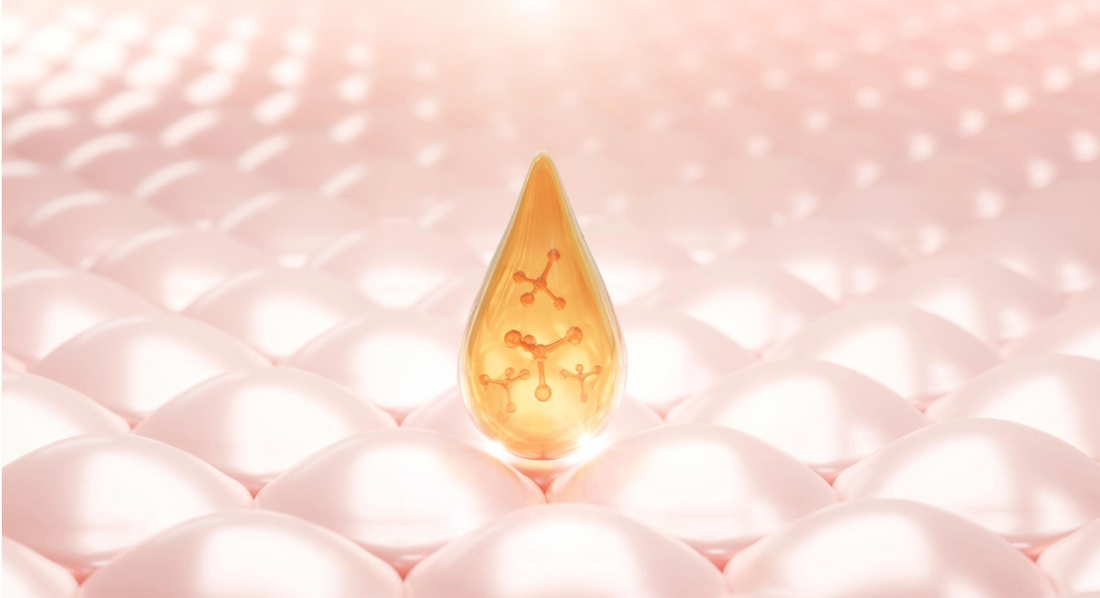Wonder what keeps your skin smooth and youthful? Well, it is collagen—considered to be one of the proteins that our bodies are composed of in large proportions. Collagen is important to keep firmness and tone in your skin and can sometimes be referred to as the "structural" protein of the skin. Our body's ability to produce collagen declines with age, and as a result of this, wrinkles and loose skin start showing. In this article, we will dwell on defining collagen, its benefits to the skin, and methods that enhance collagen production.
What is Collagen?
Collagen is the most abundant protein in the human body, accounting for approximately one-third of the total proteins. Collagen has been referred to as a structural glue that holds everything together. Being one of the varieties of connective tissue, it dwells in the tendons, muscles, bones, and skin.
Type I, II, and III collagen makes up the majority of collagen in the skin's dermal layer. This intermediary layer provides the necessary firmness and suppleness to the skin. Among 28 known variants of collagen, Types I, II, and III make up the most common variants in the skin. Over 80% of the dermal layer is made up of Type I collagen, and hence it becomes very essential for skincare products that claim anti-aging properties.
Benefits of Collagen to Skin
The primary role of collagen in our body is to support the structure of the skin. It provides elasticity and firmness to the skin and, therefore, makes it look young, smooth, and supple. Our body produces collagen naturally, but its natural production starts decreasing in the middle of our 20s at a rate of about 1% per year. It is this reduction that brings about wrinkles and fine lines due to reduced elasticity in the skin.
Factors of Collagen Depletion
Aging alone does not eliminate collagen. Some other contributors are as follows:
- Sun Exposure: UV rays are believed to break down collagen fibres in the skin, making the skin age quicker than it actually should.
- Smoking: In addition to preventing collagen formation, tobacco smoke destroys collagen that already exists.
- Diet: The consumption of too much sugar causes glycation. It is a condition wherein sugar binds itself to collagen fibers to form an inflexible, non-elastic structure.
- Pollution: Environmental pollutants such as diesel fumes and UV can oxidise collagen fibers and speed up their breaking down process.
Benefits of Collagen to Skin
Single-source collagen is important in ensuring that you enjoy these benefits to the maximum. Mixed collagen might have blended or lower-grade sources, while single-source collagen guarantees that it's pure and gives your skin exactly what it needs to appear youthful and radiant. In choosing any collagen supplement, one should pay much attention to the labels. Other brands blend various types of collagen—Type I, II, and III. However, the best supplements deliver Type I & II collagen from a single source: either marine or bovine, so you know which provides the best quality for your skin's needs. Now that we know its general function, let us discuss its specific benefits to the skin:
- Minimizes fine lines and wrinkles
Collagen peptides are powerful in reducing wrinkles and fine lines. As we get older, our skin loses collagen gradually, making it less flexible and forming wrinkles. It will help bring back the levels by supplementing natural collagen and bring back firmness and bounciness to the skin. Research reveals a true difference in skin elasticity when collagen intake is increased, with less of the visible appearance of skin aging.
Check - What’s Up Wellness Beauty Collagen
- Promotes Good Skin Hydration
Collagen is needed to maintain well-hydrated skin. It prevents dryness and flakiness and maintains well-moisturized skin. Skin with low levels of collagen may become less hydrated. When the level runs high, the skin becomes more efficient in terms of retaining moisture, which is essential to improve flexibility in skin flexibility.
- Fosters Elasticity of Skin
Elasticity is the ability of your skin to stretch back into its original form. Keeping skin taut and elastic, elastin does the job, while the function of elasticity is almost entirely performed by collagen. As we grow older, our skin begins to droop, for at this age, less amount of collagen is produced in the body. However, using some collagen-rich skincare products or supplementing with collagen can make your skin more pliable.
- Improves Wound Healing
Collagen is an important factor in wound healing. It increases the rate of wound healing and promotes new tissue development. Collagen is produced at a site of injury, for example, a cut or an abrasion, to seal the wound. The collagen dietary supplement assists in wound healing also, reducing the chance of scarring. Moreover, collagen-based dressings are utilized to a large extent in many medical treatments, from burns to chronic ulcers, because of their moisturizing nature, which helps the healing process.
Methods of Increasing Collagen Synthesis
Of course, the obvious question at this point would be, "How can we increase collagen production?" when considering that collagen benefits the skin. Some of the methods for doing this include:
- Collagen supplements
These collagen-containing supplements also come in many forms, such as beverages and powders, not to mention the powdered capsule form. Sources are mainly fish and bovine. These dietary supplements have hydrolyzed collagen, which is broken down into smaller peptides for easier absorption into the body. On this point, studies related to collagen supplements demonstrated that they decreased facial wrinkles, improved skin suppleness, and increased skin moisture content. Most experiences bring about changes after 4–8 continuous weeks of use.
- Foods That Enhance Collagen
The following meals can increase the production of collagen in the body naturally:
- Bone Broth: Animal bones, when boiled in water, yield a broth extremely rich in collagen, and full of nutrients.
- Vitamin C: Without vitamin C, the synthesis of collagen is just impossible. You can get it from citrus fruits, strawberries, and bell peppers.
- Amino Acids: Sources that are rich in glycine, proline, and lysine, such as fish, chicken, eggs, and beans, participate in the formation of collagen.
- Antioxidants: Foods that are high in antioxidants, such as berries, dark chocolate, and green tea, keep tightly soldered collagen from self-aging.
- Collagen-Based Skincare Products
Very few collagen-based skincare products really live up to their hype. Everybody raves about them, but truth be told, applying collagen to your skin via serums or creams just isn't that fantastic. The collagen molecules are just too big to penetrate deeper into the skin. So anything good you notice is most likely sitting on top of your skin, kind of making it moist or puffy for a little while. Look for ingredients that work—retinol, peptides, and hyaluronic acid—to get real changes. These will help your skin make its own collagen from the inside out. This makes them far more effective than just applying collagen to the top of your skin.
Conclusion:
It makes your skin young and healthy with collagen. It enhances skin hydration, reduces wrinkles, enhances elasticity, and even reduces stretch marks and cellulite. This substance is involved in the healing process of wounds.
These may include supplements, dietary changes, or the application of cosmetic products. Keeping your skin sun-safe, eating foods to boost your collagen levels, and looking into collagen supplements can all help in having that beautiful, youthful-looking glow on your skin. As always, consult a doctor before starting any new supplement regimen.

































